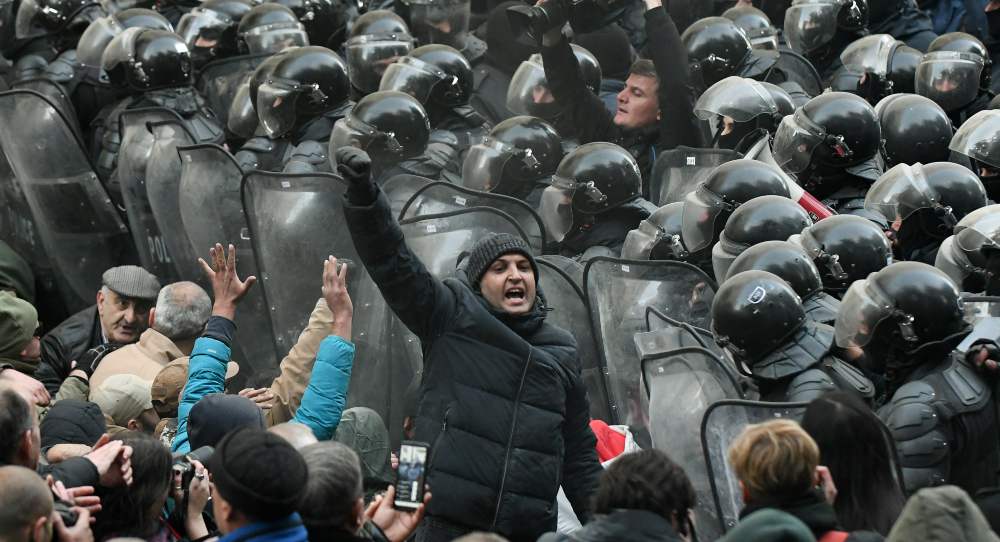RIO DE JANEIRO, BRAZIL – (Opinion) At the beginning of the third act of Shakespeare’s ‘Hamlet’, struggling in the knowledge of the rot and corruption that pervades his kingdom, Hamlet, Prince of Denmark famously asks the most existential of all questions: “To be or not to be?”
That is the question which, in one form or another, we must all confront as we look out at a world changed by the pandemic in many ways beyond our imaginings, and for which we seek a frame of reference to make sense of it all and forge a path forward, asking, like Hamlet:
Whether ’tis nobler in the mind to suffer
The slings and arrows of outrageous fortune,
Or to take arms against a sea of troubles
And by opposing end them.

As the world drifts away from the democratic ideals of freedom and justice (albeit often badly executed) towards authoritarian and even fascist constructs and wannabe dictatorships, are we prepared to accept and suffer this drift uncomfortably, or oppose it and have the courage to push back?
It has always been easier to sit back quietly and not rock the boat, rather than jumping up and down with the inherent risk that our actions will capsize the boat and make us meals for the sharks. History tells us over and over that until life becomes truly intolerable, the majority of people don’t embrace revolution and are willing to ‘go along’, with the flow, believing, often correctly, that the immediate discomfort will go away if only we have sufficient patience to endure.
Much of our religious belief is based on this concept of patience, The Bible reminds us: “Rejoice in hope, be patient in tribulation, be constant in prayer.” Romans 12:12 After all, we have to admit that more rebels have ended up hanging from scaffolds and ultimately forgotten, rather than being celebrated with fireworks and statues.
I had half promised myself that since there is currently such a deluge of coverage of the outrages passing for government in Brazil, the US and much of the rest of the world, yet more comment on this subject from this gringo would do nothing more than add noise to the cacophony: Quoting Macbeth, “full of sound and fury. Signifying nothing”.
Why am I having trouble with that?
I think it is because what we are experiencing today is not the usual pendulum swing between left and right, progressive and conservative, disruption and retention of the status quo. It is many times more profound than any of the ‘breaking news’ events which ‘bing’ on our cell phones and report on the latest outrage or calamity. These are events, often trivial, but needed to fuel the 24-hours-breaking-news metric dictated by the broadcast and virtual media – who demand something, anything, to fill the time between the commercial messages, their bread, butter and jam.
Perhaps the pandemic provides a rare moment to take a giant step back from the mundane world in which we tend to spend most of our lives and to have a serious look around us at what really matters. One way to “take arms against a sea of troubles and by opposing, end them” is to decide which seas of troubles are the most important battles to fight.
All but the most contrarian troglodytes cannot ignore climate change as one such trouble, even if there is legitimate doubt whether the forces causing it are mans’ greedy short-termism or the universal cycles of the planets. As Jay Lehr, a leading denier of the human contribution argues, we need to “help people realize the absurdity of proclamations that we must work to ‘stop climate change’” liking this to the impossibility of “stopping the solar system from revolving around our galaxy”.
Despite Lehr’s cogent arguments, I’m with the ‘better safe than sorry’ contingent. When we read about the negative economic effects of environmental protectionism, it is hard not to remember ecologist Guy McPherson’s memorable observation: “If you really think that the environment is less important than the economy, try holding your breath while you count your money.”
Each day when I marvel at the majestic beauty of the jaqueira [jackfruit] grove that surrounds the Bahian house where I am sequestered, I know that we must do whatever we can to protect it.
These are not just trees. They are living examples of nature’s wonder, guardians of years and years of natural change and history. They may well have been one of the first things Portuguese explorer Pedro Álvares Cabral saw as his ships sailed along the coast, searching for a ‘porto seguro’, a safe harbor which he found just a few hour’s sail down the coast from here.
Even as beginners in the practice of phenology, the close observation of nature’s rhythms, we can begin to achieve something of a roadmap to the natural changes more likely to affect our post-pandemic lives than the often dreary day-to-day news events. It is a good way of getting a calm fix on what’s really important. Writing in ‘Slate’, the appropriately named Rebecca Onion suggests; “Keep a journal in which you track how the seasons are changing around you. In so doing, you can anchor yourself in place and be a witness to the way nature is actually responding to change, instead of dwelling on the disasters that might come.”
That more disasters will come is a certainty. To define our futures, now is the moment we must face the existential question of whether to suffer them passively or to push back.

